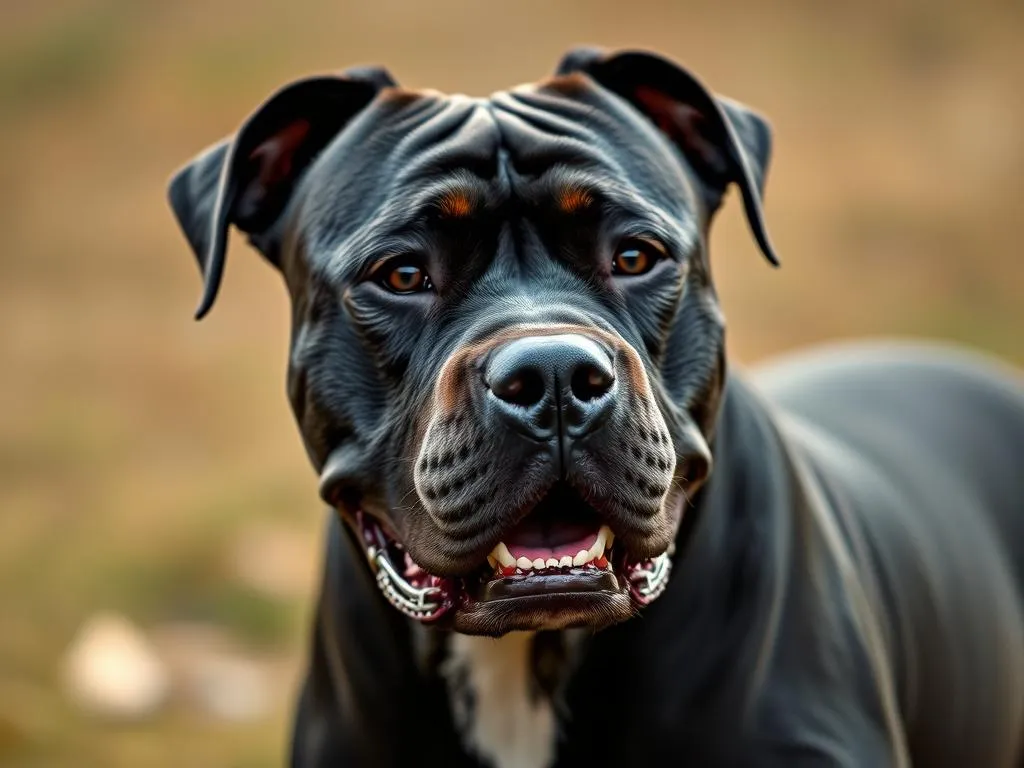
Introduction
Dog breeds refer to distinct groups of domestic dogs that share specific characteristics, behaviors, and physical traits. Understanding these characteristics is crucial for potential dog owners, as they guide decisions on which breed may be the best fit for their lifestyle.
One of the most recognized yet misunderstood breeds is the black pitbull. Known for their muscular build and loyalty, black pitbulls often face stigma and misconceptions that overshadow their true nature. This article aims to provide comprehensive information about black pitbulls, covering their history, characteristics, health considerations, and tips for responsible ownership.
Understanding Dog Breeds
What is a Dog Breed?
A dog breed is a particular strain of dog that has been selectively bred for specific traits, behaviors, or appearance. The significance of dog breeds lies in their ability to fulfill various roles, from companionship to work. Historically, dog breeding has evolved over thousands of years, with early domesticated dogs being bred for hunting, herding, and guarding.
Popular Dog Breeds
Some of the most popular dog breeds include Labrador Retrievers, German Shepherds, and Golden Retrievers. These breeds are defined by traits such as intelligence, adaptability, and friendly temperaments, making them appealing to a wide range of dog owners.
The Pitbull Breed: An Overview
History of the Pitbull
The black pitbull is a member of the pitbull family, which has a complex and often controversial history. Originally bred in the 19th century in England for bull-baiting, these dogs were later brought to America, where they were used as farm dogs and family companions. Over time, the breed has evolved, leading to both positive and negative perceptions.
Different Types of Pitbulls
The term “pitbull” encompasses several breeds, including:
- American Pit Bull Terrier: Known for their strength and athleticism, American Pit Bull Terriers are loyal and protective companions.
- American Staffordshire Terrier: Often confused with the American Pit Bull Terrier, this breed is stockier and has a slightly different temperament.
- Staffordshire Bull Terrier: A smaller pitbull variant, the Staffordshire Bull Terrier is known for its affectionate nature and is a great family pet.
Characteristics of the Black Pitbull
Physical Traits
The black pitbull boasts a sleek, muscular physique that often draws attention. Key physical traits include:
- Coat Color and Texture: The most distinctive feature is its short, glossy black coat, which can range from solid black to brindle patterns.
- Size and Weight: Adult black pitbulls typically weigh between 30 to 85 pounds, depending on their lineage and gender.
- Distinctive Features: They have a broad head, powerful jaws, and strong necks, contributing to their robust appearance.
Temperament and Behavior
The temperament of a black pitbull is often misrepresented. Common personality traits include:
- Affectionate and Loyal: They are known for forming strong bonds with their families.
- Energetic and Playful: Black pitbulls require regular exercise and mental stimulation to thrive.
- Trainability: With consistent training methods, they are eager to learn and respond well to positive reinforcement.
Health Considerations
Common Health Issues
Like any breed, black pitbulls are predisposed to certain health conditions, including:
- Hip Dysplasia: A genetic condition that affects the hip joint, leading to arthritis and pain.
- Allergies: They may suffer from skin allergies, which require regular veterinary care and management.
- Heart Conditions: Some pitbulls may be prone to heart-related issues, necessitating regular check-ups.
Preventive Care
Preventive care is vital for maintaining the health of your black pitbull. Regular veterinary visits, vaccinations, and flea and tick preventatives can help prevent many common health issues.
Training and Socialization
Basic Training Techniques
Training is essential for a well-behaved black pitbull. Key training techniques include:
- Obedience Training: Teaching basic commands such as sit, stay, and come is crucial for safety and effective communication.
- Positive Reinforcement Methods: Use treats and praise to encourage good behavior and strengthen the bond between you and your dog.
Socialization Tips
Early socialization is vital for a black pitbull to develop into a well-rounded pet. Some tips include:
- Exposure to Different Environments: Introduce your pitbull to various settings, people, and animals to reduce fear and anxiety.
- Playdates with Other Dogs: Organize playdates with well-behaved dogs to encourage positive interactions.
Nutrition and Diet
Nutritional Needs of Black Pitbulls
A balanced diet is crucial for the health of your black pitbull. They require a diet rich in:
- High-Quality Protein: Essential for muscle development and overall health.
- Healthy Fats: Important for energy and a shiny coat.
- Vitamins and Minerals: Necessary for immune function and overall well-being.
Feeding Guidelines
When feeding your black pitbull, consider the following guidelines:
- Portion Control: Follow the feeding guidelines on your dog food label, adjusting based on your dog’s activity level.
- Frequency of Feeding: Most adult pitbulls do well with two meals per day, while puppies may require more frequent feeding.
Exercise Requirements
Daily Exercise Needs
Black pitbulls are energetic dogs that thrive on regular exercise. Recommended activities include:
- Daily Walks: A minimum of 30 to 60 minutes of walking is essential for physical health.
- Interactive Play: Engaging in games like fetch or tug-of-war can help expend excess energy.
Mental Stimulation
Mental exercise is just as important as physical activity for black pitbulls. Some activities to consider are:
- Puzzle Toys: These toys challenge your dog’s problem-solving skills.
- Training Sessions: Regular training can provide mental stimulation while reinforcing good behavior.
Responsible Ownership
Legal and Ethical Considerations
Owning a black pitbull comes with responsibilities, including understanding breed-specific legislation that may exist in your area. Familiarize yourself with local laws regarding pitbull ownership to ensure compliance.
Finding a Reputable Breeder or Rescue
When looking for a black pitbull, seek out reputable breeders or rescue organizations. Tips for choosing a responsible source include:
- Research: Look for breeders who prioritize health testing and provide a safe environment for their dogs.
- Consider Adoption: Shelters often have pitbulls in need of homes, and adopting can be a rewarding experience.
Conclusion
In summary, the black pitbull is a loyal and affectionate breed that requires responsible ownership, proper training, and regular care. By understanding their characteristics and needs, potential owners can make informed decisions that benefit both the dog and the owner. Adopting or purchasing a black pitbull should be a thoughtful process, emphasizing the importance of commitment, education, and love.









